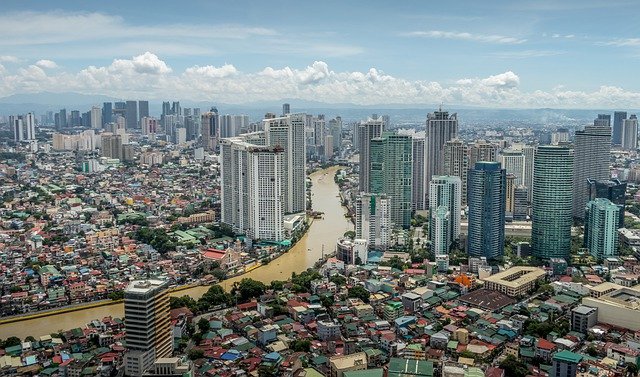
-
Foreign chambers of commerce in the Philippines urged Congress to pass the bill amending the Public Service Act soonest to encourage more investments in the Philippines
-
The group said the regulation of public services and restrictions in foreign ownership under the Constitution have created the country’s reputation as being more closed to foreign investment than most Asian economies
-
When enacted, the foreign chambers said the law is expected to increase competition, improve technology, modernize services and lower their prices to the benefit of Filipino consumers
Foreign chambers of commerce in the Philippines are urging Congress to pass the bill amending the Public Service Act (PSA) soonest, noting member-companies will be encouraged to invest in the Philippines once the legislation becomes law.
In a joint statement, the foreign chambers commended the Senate for starting the plenary debate on Senate Bill (SB) 2094. The measure aims to clear “the ambiguity surrounding the interchangeably used terms ‘public utility’ and ‘public service,’” and limit public utility to just three services—distribution of electricity; transmission of electricity; and water pipeline distribution and sewerage pipeline systems.
To be excluded from the definition of public utility are transportation, telecommunications, broadcasting, and other public services. This exclusion will effectively allow 100% foreign ownership in these industries, as they will no longer be considered public services or be covered by the 60%-40% ownership principle under the Constitution.
“We strongly support the passage of this vital legislation and pledge our efforts to bring the reform to the attention of appropriate firms in our member countries in Australia-New Zealand, East Asia, Europe, and North America,” the foreign chambers said.
“We will encourage them to invest in the Philippines and support better public services for the Filipino people. With its large, growing economy, the Philippines will enjoy many benefits when local and foreign firms compete side-by-side and together to provide the Filipino with better services that this game-changing reform will bring,” they added.
The bill proposes to define public utilities and differentiate them from pubic services. Only “natural monopolies” involving distribution and transmission of electricity, water, and sewerage will be considered public utilities.
The foreign chambers noted that for 85 years the Commonwealth Act 146 has regulated public services and included a long list of 25 services which are not natural monopolies and are not usually considered public utilities under best international practice. The Philippine Constitution prescribes that public utilities must be 60% Filipino-owned, but provides no definition of the term.
The foreign chambers said “these restrictions have been the basis of the reputation of the country as more closed to foreign investment than most Asian economies.”
They claimed such restrictions have also created a business environment for the services sector that nurtured oligopolies and weakened competition to the detriment of consumers.
When enacted, the foreign chambers said the law is expected to increase competition, improve technology, modernize services and lower their prices, to the benefit of Filipino consumers.
SB 2094 was earlier endorsed by the Senate Public Services Committee (SPSC) and President Rodrigo Duterte as a priority bill.
READ: Senate committee bats for passage of Public Service Act ; Duterte certifies as urgent 3 measures, including Public Service Act amendment
The Senate bill went through interpellation on May 24. Its counterpart bill in the Lower House has been approved on March 10, 2020.
SPSC chair Senator Grace Poe earlier explained that public utilities are to be treated as natural monopolies, entry to which must be restricted pursuant to Section 11, Article XII of the Constitution. All other public services that are not natural monopolies will be freed from such foreign equity restriction but not from any of their other responsibilities as public service providers, she pointed out.
During the May 24 interpellation, Poe explained that the proposed law is not an attempt to change the Constitution but is “just merely carving out and clarifying what the law is because there is no specific definition and categorization of what a public service or public utility is.”
To allay fears the proposed measure would put the country’s sovereignty at risk, a provision was put in SB 2094 tasking the National Security Council to initiate a review of foreign investments that would result in the control of any critical infrastructure in the country.
Critical infrastructure refers to assets so vital to the country that the incapacity of such assets would debilitate national security. These assets are the transmission and distribution of electricity, water and sewerage pipeline systems, telecommunications, and common carriers. This review would eventually be submitted for approval or appropriate action by the President.
RELATED READ: PSA bill should include sea, air ports as ‘critical’ infra, say domestic lines
Another safeguard, found in the reciprocity clause, provides that foreign nationals may only own more than 40% of the public services identified as critical infrastructure if their country accords a reciprocal right to Filipinos by law, treaty or international agreement.
Moreover, foreign employees are only allowed if a competent, able and willing Filipino is determined to be unavailable. Foreign employment shall not be more than 25% of the total employees of any given corporation. – Roumina Pablo




